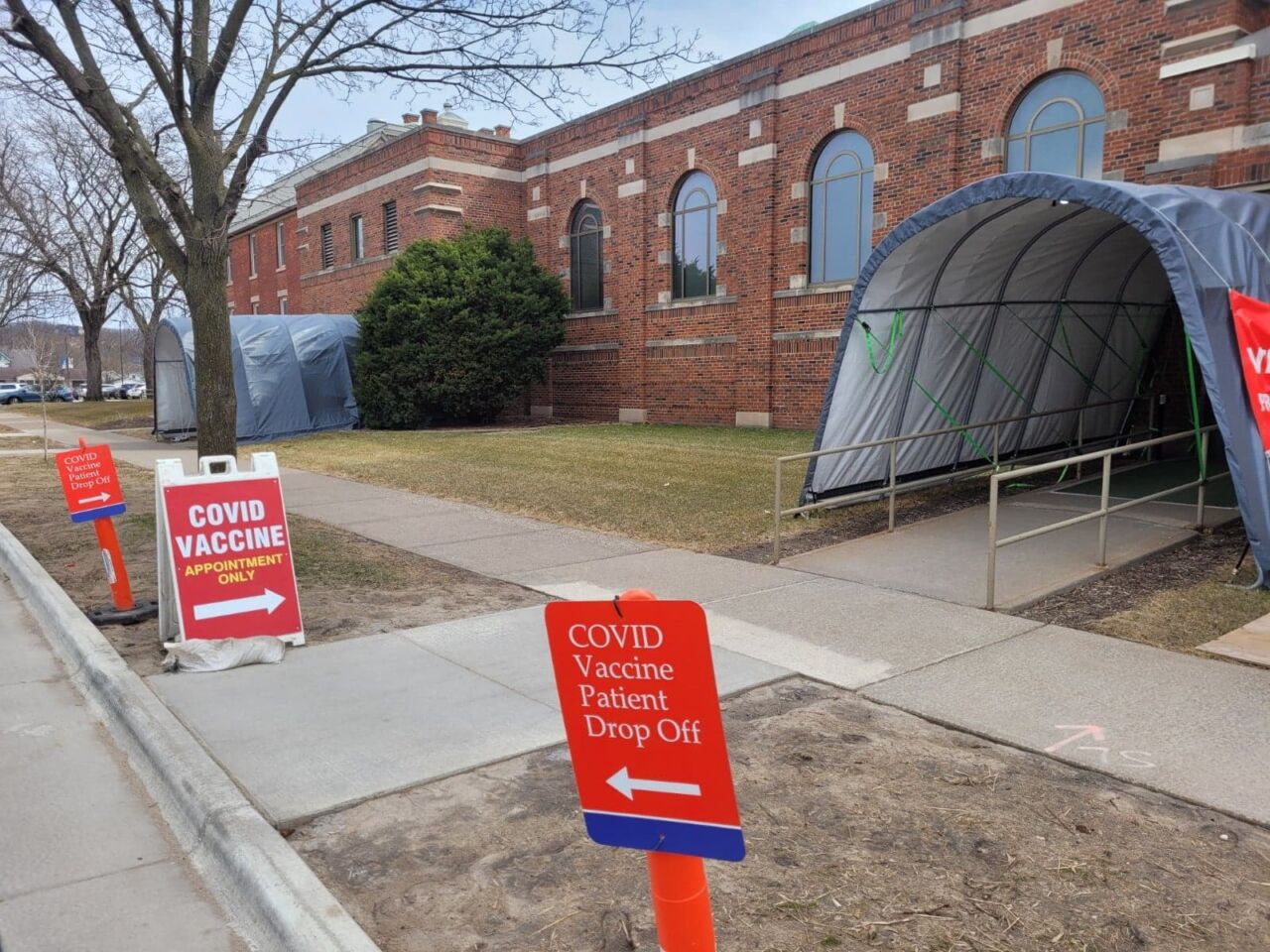Coronavirus
Wisconsin suspends use of J&J vaccine amid investigation on six cases of the 6.8 million doses given in U.S.

MADISON, Wis. (AP) — Wisconsin joined other states Tuesday in suspending the use of Johnson & Johnson’s COVID-19 vaccine while federal agencies investigate six cases in which women who received the single-dose drug later developed blood clots.
State health officials made the move after the Centers for Disease Control and the Food and Drug Administration recommended the course of action, saying the pause could last days.
Mayo in La Crosse also suspended use, but expects answers soon (read more here).
The clots occurred in veins that drain blood from the brain and in patients who also had low amounts of platelets, the blood fragments that normally form clots. All six cases were in women between the ages of 18 and 48, including one who died.
More than 6.8 million doses of the J&J vaccine have been given in the U.S., the vast majority with no or mild side effects.
Wisconsin Department of Health Services Secretary Karen Timberlake said the clots appear to be extremely rare but that the state was pausing the use of the J&J vaccine out of an abundance of caution.
DHS Deputy Secretary Julie Willems Van Dijk said during a news conference that although the clots seem to be rare, the pause will give doctors a chance to review patient records and perhaps detect more vaccinated people who are suffering from them.
“We want to know what is the true number,” Van Dijk said. “This is a way to alert (physicians) to this unique situation . . . I hope Wisconsinites can hear those kinds of actions as ways to to increase safety rather than making them more hesitant or fearful.”
She said she hopes the pause will last only a few days to a week and that state officials still hope to use the J&J vaccine at some point. COVID-19 still presents a greater risk than the vaccine, she said.
“(The clot) risk is about one in a million,” she said. “The risk of getting COVID is one in 10. The risk of dying of COVID is one in 600. It’s important to look at that whole picture.”
State health officials on Tuesday reported 922 new COVID-19 infections and 10 more deaths from the disease. The state’s infection rate continues to rise. The seven-day average daily case rate was 794 on Tuesday, up from 329 on March 7.
Dr. Ryan Westergaard, the state’s chief medical officer, said more contagious strains of the coronavirus and more cases in children are driving the spike. He noted that the under-18 age group has seen the most cases of any age group over the past two weeks.
Meanwhile Tuesday, Gov. Tony Evers announced that he reached a deal with federal officials to preserve $70 million in monthly food aid for the needy.
Congress in 2020 handed states additional money for food assistance if they declared coronavirus emergencies. The Wisconsin Supreme Court in March ruled that Evers could no longer declare pandemic-related emergencies without legislative consent. The ruling meant the state would have lost the monthly aid starting in May.
Evers said the U.S. Department of Agriculture and Food and Nutrition Service has agreed to accept a state health department declaration directing the department to continue to work to control COVID-19 as a qualifying declaration to continue the funding.
Follow Todd Richmond on Twitter: https://twitter.com/trichmond1

